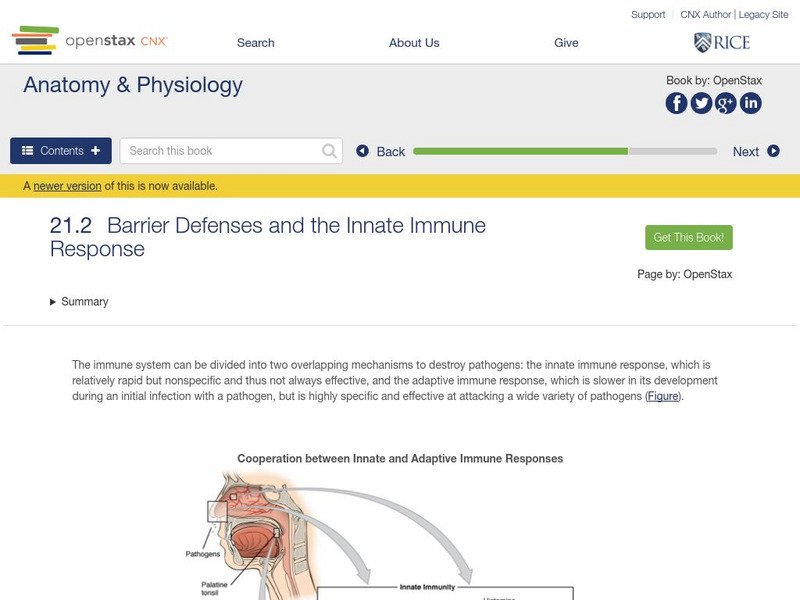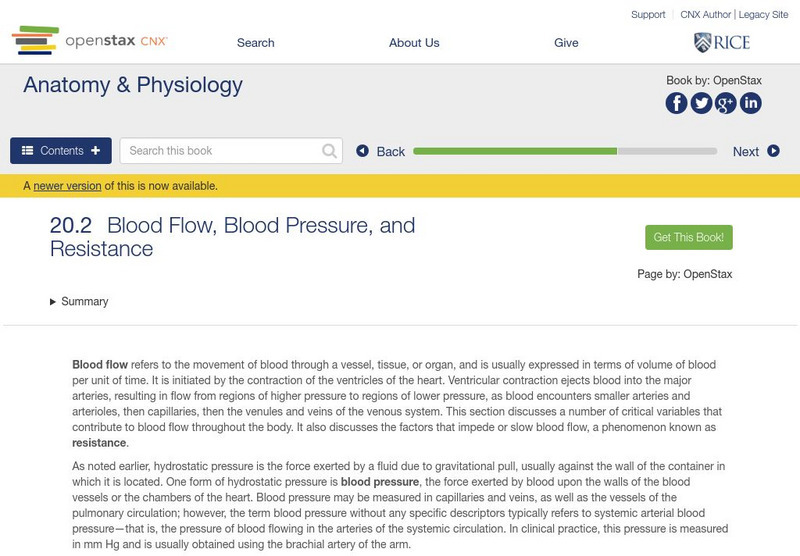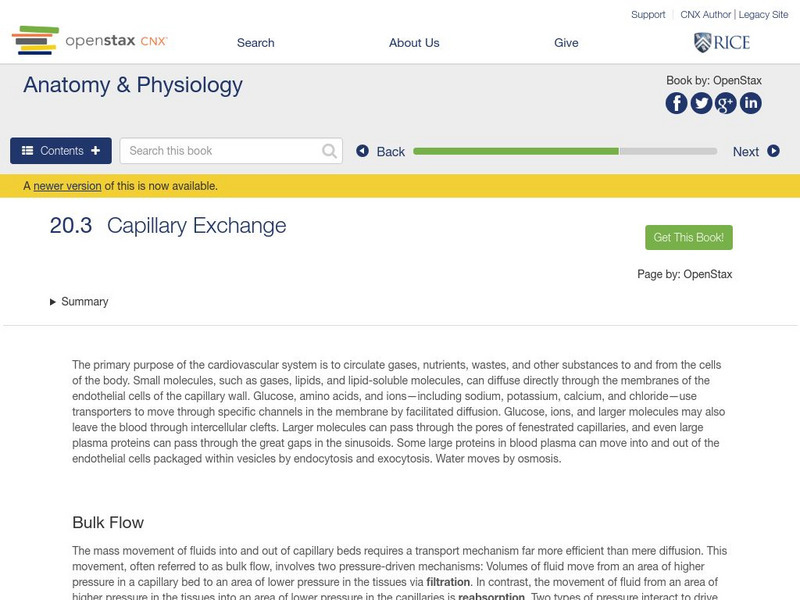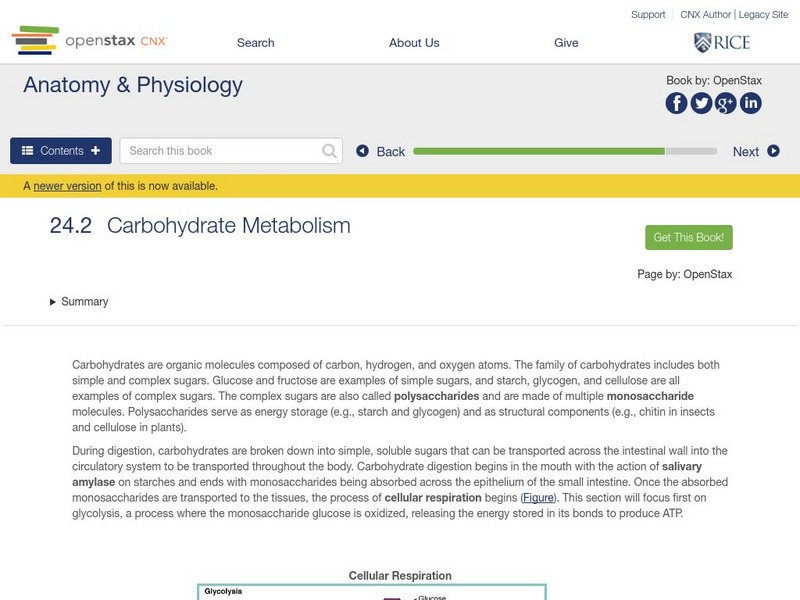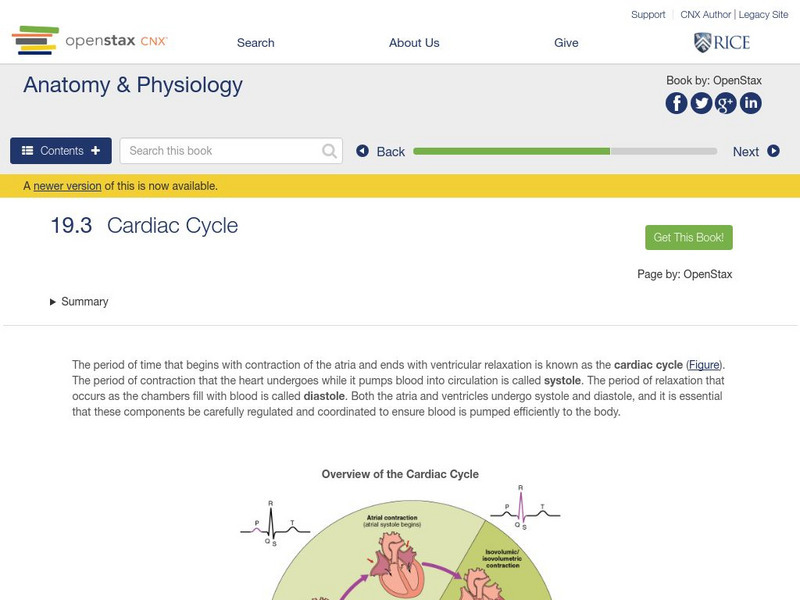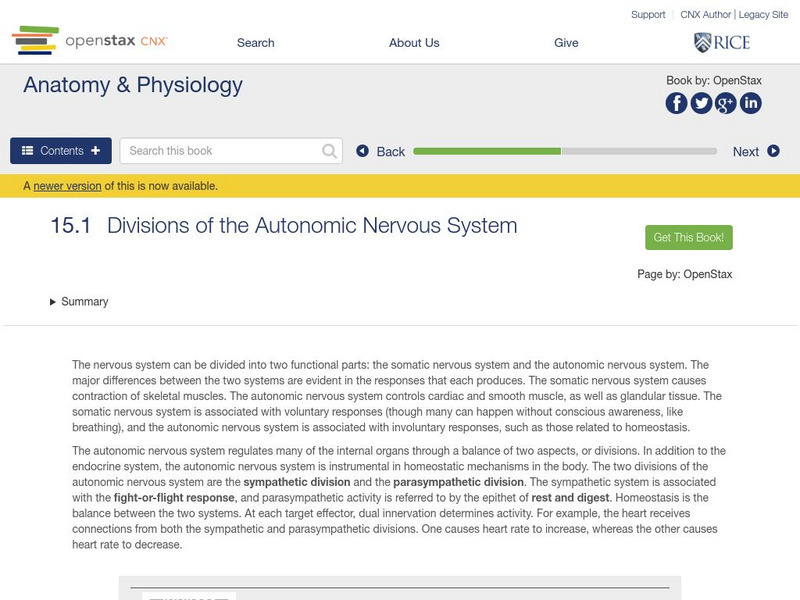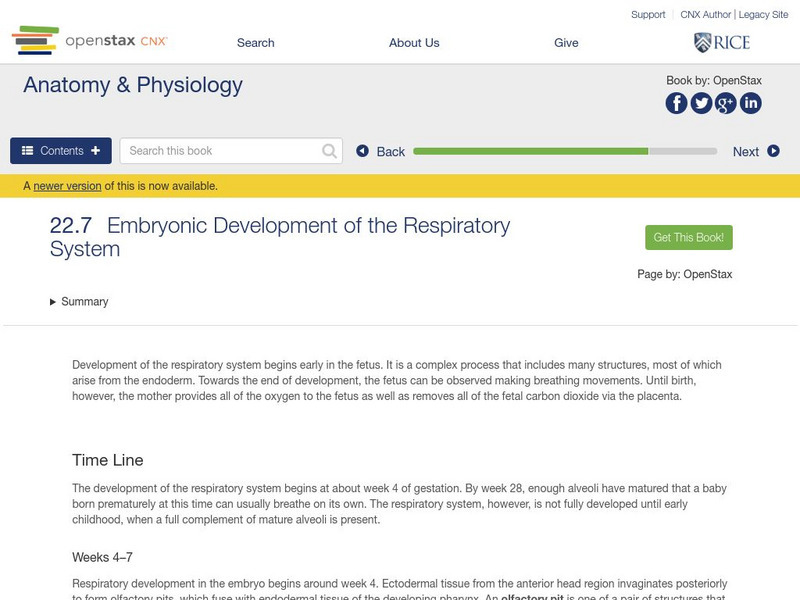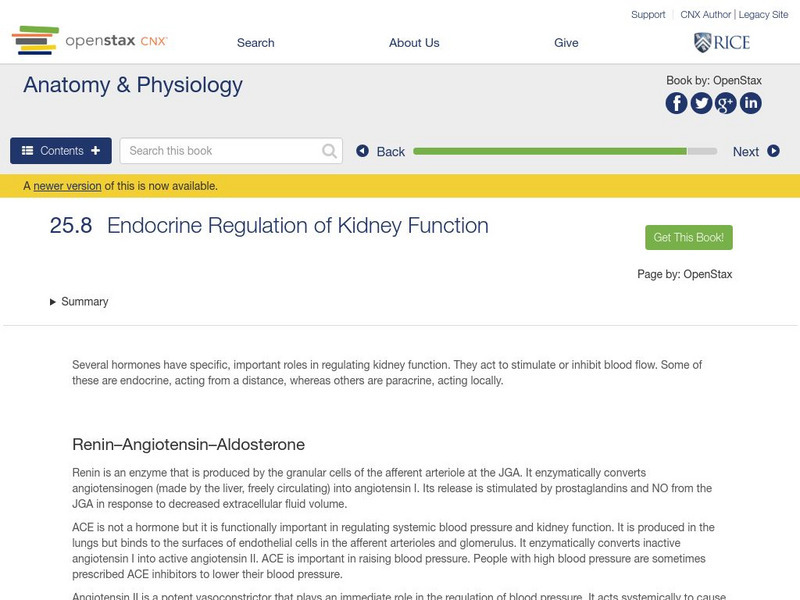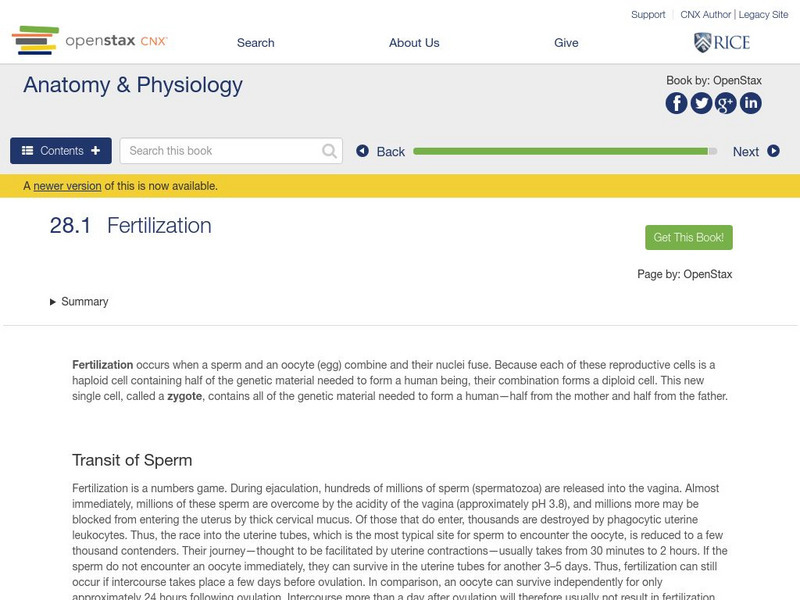OpenStax
Open Stax: Anatomy & Physiology: Acid Base Balance
Students learn how buffer systems in the body - the respiratory and the renal - affect the blood pH.
OpenStax
Open Stax: Anatomy & Physiology: Accessory Structures of the Skin
Learn here about the accessory structures of the skin, including, hair, nails, sweat glands, and sebaceous glands.
OpenStax
Open Stax: Anatomy & Physiology: Adaptive Immune Response: B Lymphocytes
Students will learn the structure and function of B-cells and the antibody classes and their functions.
OpenStax
Open Stax: Anatomy & Physiology: Adaptive Immune Response: T Lymphocytes
With these learning exercises, students explain the advantages of the human adaptive immune response over the innate immune response including the types of T cells, development, and their functions.
OpenStax
Open Stax: Anatomy & Physiology: An Overview of Blood
Find out about the characteristics and components of blood with informational text, diagrams, examples, and review questuons.
OpenStax
Open Stax: Anatomy & Physiology: Barrier Defenses and Innate Immune Response
Students use this module to learn about the barrier defenses and the immune defense functions of the human body.
OpenStax
Open Stax: Anatomy & Physiology: Blood Flow, Blood Pressure, and Resistance
Learn about the components and measurement of arterial blood pressure, as well as the variables affecting blood flow and blood pressure in this learning exercise.
OpenStax
Open Stax: Anatomy & Physiology: Blood Typing
Students learn about the science behind blood typing, and the application of that typing as it relates to human blood transfusions.
OpenStax
Open Stax: Anatomy & Physiology: Blood Vessel Development, Fetal Circulation
Students learn about the development of blood vessels, and how this contrbutes to fetal circulation.
OpenStax
Open Stax: Anatomy & Physiology: Capillary Exchange
Students learn about the primary mechanisms of capillary exchange and distinguish between capillary hydrostatic pressure and blood colloid osmotic pressure.
OpenStax
Open Stax: Anatomy & Physiology: Carbohydrate Metabolism
Students understand the process of carbohydrate metabolism, and the chemical processes involved in this aspect of digestion.
OpenStax
Open Stax: Anatomy & Physiology: Cardiac Cycle
Students learn the structure and function of the cardiac muscle and study the components of the conducting system that distributes electrical impulses through the heart during the cardiac cycle.
OpenStax
Open Stax: Anatomy & Physiology: Central Processing
Students learn the pathways that sensory systems follow into the central nervous system, and understand the difference between the two major ascending pathways in the spinal cord.
OpenStax
Open Stax: Anatomy & Physiology: Chemical Digestion/absorption: A Closer Look
In this module, find out the locations and primary secretions involved in the chemical digestion of carbohydrates, proteins, lipids, and nucleic acids.
OpenStax
Open Stax: Anatomy & Physiology: Circulation and the Central Nervous System
Students learn about the vessels that supply the central nervous system with blood.
OpenStax
Open Stax: Anatomy & Physiology: Communication Between Neurons
Students explain the differences between the types of graded potentials, and categorize the major neurotransmitters by chemical type and effect.
OpenStax
Open Stax: Anatomy & Physiology: Disorders of Acid Base Balance
Learn about the three blood variables considered when making a diagnosis of acidosis or alkalosis, and then find out the source of compensation for blood pH problems of a respiratory or renal origin.
OpenStax
Open Stax: Anatomy & Physiology: Divisions of the Autonomic Nervous System
In this module, learn about the components that generate the sympathetic and parasympathetic responses of the autonomic nervous system.
OpenStax
Open Stax: Anatomy & Physiology: Electrolyte Balance
Students will learn about the role of the six most important electrolytes in the body, and then study the disorders associated with abnormally high and low levels of these electrolytes.
OpenStax
Open Stax: Anatomy & Physiology: Embryonic Development: Respiratory System
Students walk through a timeline of the phases of respiratory development in the fetus, and then propose reasons for fetal breathing movements.
OpenStax
Open Stax: Anatomy & Physiology: Embryonic Development
Students learn about the stages of embryonic development that occur before implantation as well as the process of implantation.
OpenStax
Open Stax: Anatomy & Physiology: Endocrine Regulation of Kidney Function
Learn how several hormones have specific, important roles in regulating kidney function. Find out how they act to stimulate or inhibit blood flow.
OpenStax
Open Stax: Anatomy & Physiology: Energy and Heat Balance
Learn how the human body regulates temperature and explain the significance of the metabolic rate.
OpenStax
Open Stax: Anatomy & Physiology: Fertilization
Students learn about the fertilization process of an egg and sperm cell during human reproduction.
Other popular searches
- Heart Anatomy and Physiology
- Anatomy and Physiology Web
- Plant Anatomy and Physiology
- Brain Anatomy & Physiology
- Basic Anatomy and Physiology
- Heart Anatomy Physiology
- Muscle Anatomy & Physiology
- Anatomy & Physiology 1
- Anatomy Physiology Digestion
- Anatomy & Physiology Models
- Anatomy Physiology Digestive
- Anatomy Physiology Wolf







